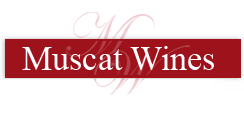Muscat Blends: France
Clairette de Die
This wine comes from the eastern Rhone region in France (Drome).
Clairette is blended with Muscat Blanc a Petits Grains to produce a sparkling white wine with a fruity, musky palate.
Rivesaltes
Rivesaltes is the birthplace of the vin doux naturel, a creation of Arnaud de Villeneuve, the eminent 13th Century physician. It was he who discovered the process of halting the alcoholic fermentation by the addition of spirit to the must, thus giving rise to a new breed of wine. The technique has since been employed in the production of Rivesaltes. Grenache Noir is the lead variety for the red wines, but this may be blended with a number of white varieties, including Grenache Blanc and Gris, Maccabeu and Tourbat. These latter four varieties are the basis for the white Rivesaltes, although they may be augmented by a maximum 20% of Muscat à Petits Grains and Muscat d’Alexandrie.
Muscat de Rivesaltes
Muscat de Rivesaltes is the most important appellation of the Rivesaltes region in Roussillon. It is also the largest Muscat appellation in France. After the high quality, small-berried Muscat Blanc a Petits Grains and the larger-berried Muscat d’Alexandrie (also known by some as the Muscat à Gros Grains) are harvested, the fermentation is arrested, and the resulting sweet, fortified wine is protected from oxidation, unlike many of the Rivesaltes styles, and usually bottled soon in order to preserve fruit freshness. One or two producers age their wine in wood, but these are the exceptions to the rule.
Maury
Four communes in the Côtes du Roussillon region qualify for the Maury appellation, setting these fortified wines apart from those of Rivesaltes. They may be white or red. Eligible varieties for the white wine includes Grenache Gris, Grenache Blanc, Maccabeu, Tourbat, augmented by a maximum 20% of Muscat à Petits Grains and Muscat d’Alexandrie.
Banyuls
Unlike Maury, Banyuls only has an appellation for red wines, although as with all the Roussillon VDN appellations the permissible varieties include several that are white. Grenache dominates, comprising 50% of the blend for Banyuls, at least 75% for Banyuls Grand Cru. Others permissible include the usual Maccabeu, Tourbat and Muscats, and also Carignan, Cinsaut and Syrah, provided these do not exceed 10%.
